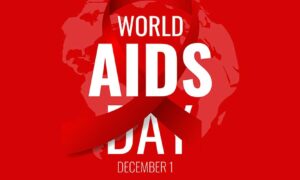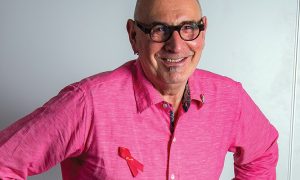Dear Dr Laura,
I really want to be able to donate blood but I understand that as a gay man I am not allowed to – is this correct? What are the reasons? And are there any ways around this?
Thank you,
John
Dear John,
Thank you for your question – it’s an important and very topical one! Blood donations save lives – the NHS uses 6,000 a day but donations have dropped by about 40% in the last decade.
Right now in the UK a gay man can only donate blood if they have not had any sex (oral or anal) with another man for 12 months – it would be fine if you’d had sex with women, including women at risk of HIV, but not men. There has been some progress; since the 1980s gay men were banned from EVER donating blood, regardless of their risk or actual HIV status, but in 2011 this was ‘relaxed’ to allow those who had abstained from sex with another man for at least a year to give blood. Northern Ireland deferred implementing this update until 2016.
Why ban gay men? This is due to concerns about transmitting infection, including HIV, to the people who receive blood or blood products. All infections have a ‘window period’ – that is the time between the infection entering the body and that infection showing up in tests. The window period depends in part on the infection and also the type of test used – HIV will show up earliest if you test directly for the virus itself whereas HIV antibody tests (your body’s response to the virus) are slower to become positive so have a longer window period. Gay men are the group at highest risk of HIV in the UK – 1 in 17 UK gay men are estimated to be HIV positive, 1 in 7 in London and 1 in 25 outside, which is the main basis for the ban. We know that statistically gay men are at higher risk of other infections such as hepatitis B and syphilis. There is concern that tests could miss important infections if people are tested too soon after exposure.
What is wrong with the ban?
The ban accounts only for sexuality, not actual behaviour. Not all gay men are at risk of HIV and there are heterosexuals at high risk of HIV to whom this ban does not apply – it is as straightforward to ask questions about actual sexual behaviour which would be more helpful than asking about sexuality alone.
Secondly, the ban ignores the fact that the tests we have for infections are very accurate and all have window periods way less than 12 months (HIV virus shows up on tests within 4 weeks, usually sooner). The blood donation service states that hepatitis B, another virus in blood that can be transmitted through sex and is commoner in gay men, can take up to 12 months to clear but tests would show if a donor has hepatitis B. A 1-year ban certainly makes no sense for HIV – and if a man has had sex only with a male partner that has also tested HIV negative (after the appropriate window period, of course) then there is NO RISK he will get HIV, whether he has had sex in the last year or not.
Thirdly, there is a real need for blood – to deny people in need, and people wanting to help, based on the sexuality of the donor is shortsighted and discriminatory.
All blood donations are tested routinely for HIV, hepatitis B and C (tests for all three include testing for the actual viruses), syphilis, and an uncommon infection called HTLV. Additional tests will be done according to travel or residence abroad and whether you’ve had piercings.
The blood donation service does not decide who can or cannot donate blood – that is down to the Department of Health and an independent advisory committee. This advisory committee is reviewing the restrictions again – the Terrence Higgins Trust has been instrumental in pushing this forwards and they, along with the National AIDS Trust, sit on the working group reviewing the rules. There’s also a parliamentary group (APPG) focused on the issue; there was an evidence review in parliament in October 2016 and, as I write this, there is a second evidence session taking place, so we can expect an update this year. Look for #BloodDonorInquiry or @APPGBlood on Twitter. Scotland may develop separate recommendations depending on the outcome as their transfusion service supports a review of the rules for gay men.
Several countries do not ban blood donation based on sexuality but on behaviour – for example, in Spain you can’t donate for 6 months after a change of partner (regardless of sexuality) or at all if you have multiple partners. The US has similar rules to the UK though these are also under review.
However, even if you can’t (yet) donate blood you can donate other important bits including stem cells, bone marrow and organs. The Anthony Nolan Trust is a charity that provides a register of potential donors lists the health requirements on their website anthonynolan.org. I wouldn’t be able to donate as I’m too old – you have to be aged 16-30 to join though once you’re on you will stay on the register until you’re 60. Being gay is not a barrier since they test all donations for infections anyway. They particularly need more men and more people from black and ethnic minority groups to sign up. To join you sign up, receive a postal kit and then send back a sample of saliva – they then get in touch if you are matched with someone who needs your help.
So, if you’re under 30, check out the Anthony Nolan website and, regardless, sign up to be an organ donor and keep an eye out for news on blood donations as I hope very much the rules will be updated soon.

Dr Laura Waters is an HIV and sexual health consultant at the Mortimer Market clinic and the Boyz Doc. Dr Laura answers your questions every two weeks in Boyz. If you have a question for Dr Laura please email her at [email protected].














